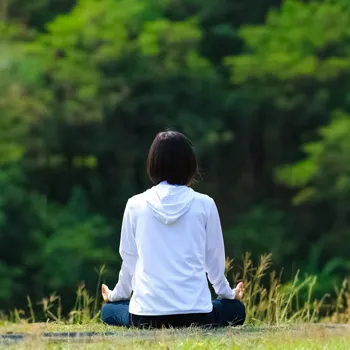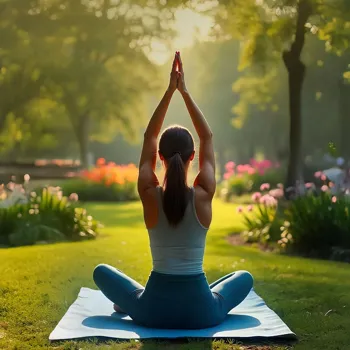Discover the power of mindfulness in your daily life. Find inner peace amidst chaos. Read more to unlock its benefits
In today’s fast-paced duniya, where deadlines loom and notifications ping incessantly,
many of us are feeling perpetually stressed and overwhelmed. It's like we are always running a race, not knowing where is anth, and what is the prize we are getting.

But, amidst this chaos, there is a solution, a way to find inner peace, a way to stay grounded in the present: mindfulness. Mindfulness, simply put, means paying your attention on purpose to the present moment, without judgement.
It is about being fully aware of what is happening both inside you like your thoughts and feelings, and outside you, like the sounds and smells around you.
Practice mindfulness in daily life by savoring small moments fully
Mindfulness is not some arcane, difficult practice reserved only for monks sitting atop the Himalayas. It is a skill you can cultivate in your everyday life, right here, right now, regardless of where you are, office or home.

You can start with something as small as paying complete attention to your morning cup of chai. Instead of gulping it down while scrolling through your phone, take a moment to appreciate the aroma, the warmth, and the taste.
Feel the cup in your hands, giving yourself a couple of minutes before you jump to anything else. This simple shift can transform a routine chore into a mindful experience.
Stay calm in traffic by practicing mindfulness to avoid road rage and improve your mood
Imagine you are stuck in traffic and your temper is on a short fuse, instead of succumbing to road rage, take a deep breath and observe your frustration without getting carried away by it. Recognize that getting angry won’t make the traffic disappear.

Focus on feeling your breath move, or listening to a calming music, or a podcast or maybe just looking at the green side of the road. This moment of mindfulness won’t magically solve traffic woes, but it will prevent you from getting swept away by your frustration and making the situation worse.
Also, you may just notice something interesting around you that you would not ever notice before.
Mindfulness reduces stress, anxiety, improves focus and sleep quality, prevents overthinking
One major benefit of mindfulness is reducing stress and anxiety. Also, people who practice this tend to be more focused, less agitated. When you are mindful, you are less likely to worry about how you were in the past or what's going to come.

Also, it also helps in improving quality of your sleep, and people can relax better when they go to bed. Mindfulness also creates a sort of barrier and prevents from overthinking about things.
Basically, mindfulness lets the person be present in the moment and not think of the possibilities or things have happened which we cannot change.
Mindfulness enhances self-awareness, identifies triggers, and improves relationships
Mindfulness brings you closer to yourself as a person. It increases your self-awareness, enabling you to clearly understand your habits, thoughts and feelings. By paying close attention to your thoughts and feelings, you can learn to identify your triggers i.e. what makes you stressed, sad or angry.

Once you know this, you can develop coping mechanisms to deal with these trigger when they arise. You can also use mindulness to improve your relationships.
When you are fully present with someone and you are really giving the person all your attention, you engage deeper, understand their perspective and communicate effectively.
Weaving mindfulness into daily life through meditation and mindful breathing
There are many ways to weave mindfulness within your daily life. You can set aside a few minutes each day for formal meditation, using guided meditation apps or videos that are available online. There are also mindfulness workshops and classes that you can attend.
Mindful breathing can be a powerful tool too. Throughout the day, take a few moments to pause, close your eyes, and paying attention to the sensation of your breath. You can start by counting your breaths. This can help you center yourself feeling stressed or overwhelmed.
The key is to start small, be patient, and consistent, and to not expect perfect results. Mindfulness is not about eliminating thoughts or emotions, but about learning to relate to them in a different way.
AI Generated Content. Glance/InMobi shall have no liability for the content










